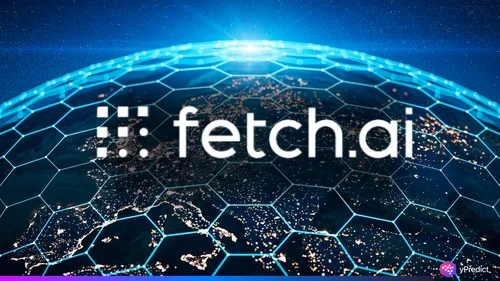
Data scraping has long been a necessity for the development of AI. Whether for academic, automation, or market intelligence purposes, AI systems rely on live data to operate effectively. Traditionally, developers utilized centralized APIs, or even maintained their own backend infrastructure, both of which have their drawbacks of centralization, costs, reliability, and finite options for sourcing the data. Today, large demand for scalable and economically-sustainable solutions has activated a new option for data sourcing/create data scraping via decentralize instead of centralize processing method. At the forefront of decentralized data scraping is Fetch.ai who offers an autonomous AI agent framework. Fetch.ai has been further developing their technology with a new decentralized peer-to-peer data layer solution called Sentinel Scout to simplify and democratize how AI agents access and consume live data from data sources like downtown parking meters.
This innovation is not only another iteration, it is a dramatic shift from traditional data processing to a distributed model where scalability, velocity, and transparency tangibly manifest in applications driven by AI technologies.
Why Traditional Data Scraping is No Longer Enough
Whether relying on your own backend server or some centralized APIs, there are some drawbacks. Developers are gaining infrastructure overhead, possible recurring downtime, as well as access to the data itself. For AI agents who require real-time web scraping, all of these drawbacks can dramatically impact performance and scalability.
Centralized models also create barriers in situations when agents plan on taking on scraping tasks on a large scale and across different content sites and formats. When you have had a lot of data to scrape, it gets expensive and eddy. Developers are now looking for less inhibited ways to simply the work required for agents, without sacrificing the availability of data.
Introducing Sentinel Scout on Fetch.ai
Sentinel Scout is a decentralized data layer built to transform web scraping. Operating on a peer-to-peer bandwidth network, it allows AI agents to pull real-time data without backend complexity. Instead of deploying servers, developers can connect directly through Fetch.ai’s uAgents framework, integrating scraping capabilities into their systems in minutes.
The real advantage lies in flexibility. Sentinel Scout supports multiple formats including JSON, TXT, and CSV, ensuring developers can structure data for different AI workflows. Whether it’s a lightweight query or bulk data scraping, the system adapts without requiring centralized resources.
How AI Agents Benefit from Integration
AI agents connected to Sentinel Scout form a fully self-contained data ecosystem. These agents will not require any third-party services or complicated backend. Instead, they will operate from a decentralized network that will grow stronger as more participants join the journey.
Developers will be able to utilize Fetch.ai’s uAgents to create agents that talk to and scrape inter and in normal operations. With Sentinel Scout and Fetch.ai’s UAgent, scalability will also be increased because the agents will be sharing the data collection process in a decentralized network without overloading centralized servers with thousands of agents operating at the same time.
The Role of APIs and Future Expansion
One of the most important aspects is the API support that will allow developers to quickly add Sentinel Scout to their existing processes. Current support encompasses JSON, TXT, and CSV outputs, and soon with support for MCP (Model Context Protocol), developers should expect compatibility with AI models and agents to be even easier.
This forward-thinking concept ensures that decentralized data scraping keeps pace with the shift to AI systems. It connects the uses of today with the potentials of tomorrow, allowing developers to be able to adopt the future without having to completely overhaul their systems.
Why Decentralization Matters for Data Scraping
Decentralization removes singular points of failure. Instead of relying on servers where a single point of failure can stop the entire workflow, a peer-to-peer system is more resilient in times of strain. Developers will have access to live data without any interruptions.
Additionally, decentralizing data scraping provides a much fairer and accessible web ecosystem. Instead of relying on expensive APIs, or the rules and regulations of the platforms, developers can build and scale their AI agents on open networks. This provides lower barriers to entry, and experimentation across multiple industries.
A New Era for Real-Time Web Scraping
With Fetch.ai and Sentinel Scout, we are already speeding towards decentralized infrastructure. Developers have a strong toolkit to build agents that are quicker, smarter, and not reliant on traditional systems.
As AI becomes more prominent in finance, healthcare, logistics, and other industries, performing real-time web scraping with no infrastructure bottlenecks will be the core competitive differentiator. Sentinel Scout is strategically positioned at this inflection point and is opening opportunities for developers to spend more time building intelligent applications rather than maintaining the infrastructure.






